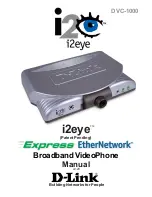
VIEWING THE NEXT CALLER ID CALL
In the event that you have a call waiting or a camped-on call at your keyset,
you can press the
NEXT
key to display the Caller ID information associated
with the call in queue at your keyset. Either the CID name or CID number will
show in the display depending on your Name/Number selection.
To view Caller ID information for calls that have been camped-on to your
keyset, press the
NEXT
key. If your keyset does not have a
NEXT
key, press
the
CID
key and then the
NEXT
soft key.
SAVING THE CALLER ID NUMBER
At any time during an incoming call that provides CID information, you may
press the
SAVE
key to save the CID number. If your keyset does not have a
SAVE
key, press the
CID
key, the
SCROLL
key and then the
SAVE
soft key.
The system must be using LCR to dial the saved number.
REDIALING A SAVED CALLER ID
NUMBER
To redial a number that has been saved, press the
SNR
key or dial
17
.
NOTES:
1.
Your telephone system must have LCR correctly programmed to redial
the saved number.
2.
If the Hot Keypad feature has been turned off, you must first lift the hand-
set or press the
SPK
key before you begin dialing.
STORING A CALLER ID NUMBER
At any time during an incoming call that provides CID information, you may
save the CID number as a speed dial number in your personal speed dial
list. To store a Caller ID number in a personal speed dial bin:
•
Press the
STORE
key. The system displays the speed dial bin in which
the number was stored,
OR
•
Press the
CID
key and then press the
SCROLL
key.
•
Press the
STORE
soft key.
•
The system displays the speed dial bin in which the number was stored.
NOTE: Your telephone system must have LCR correctly programmed to re-
dial the saved number. If LCR is not being used on your system, you will not
be allowed to STORE CID numbers.
49
NO CID DSP
Caller ID Digital Signal Processors (CIDDSP’s) are
resources in the phone system required for receiving
CID data. If there are no CIDDSP’s available at the time
a call comes in, this is the message you will see on your
display.
NOTE: The Caller ID features require optional software and/or hardware.
Please see your service and installation company for details.
WHAT IS ANI?
ANI (Automatic Number Identification) is a feature offered by some tele-
phone service providers that provides the calling party’s telephone number.
This service is only available on E&M Tie Lines on a T1, digital trunk. ANI is
similar to Caller Identification (CID) but the format and information of the
calling person is different. CID uses FSK signalling and ANI uses DTMF sig-
nalling. Usually, with ANI, a calling party’s identity is the Listed Directory
Number (LDN) unless a separate bill-to-number has been specified, (in
which case the bill-to-number will be sent). Note that ANI does not provide
calling party NAME, only the number. The phone system can provide calling
number to name translation table.
WHAT IS CLI?
On ISDN circuits, calling party information is called CLI and is supported on
both BRI and PRI type circuits on the iDCS. On BRI circuits the iDCS only
supports number delivery and, like ANI, a name can be attached to the tele-
phone number of frequent callers via the Caller ID translation table. On
5ESS and NI2 PRI circuits both name and number support is provided on
the iDCS system. On a DMS100 circuit only number service is provided.
SELECTING YOUR CALLER ID
DISPLAY
You can decide if you want to see the Caller ID name or Caller ID number in
the display. Regardless of which one is selected, you can press the
NND
key to view the other pieces of Caller ID information. To select the type of
Caller ID information you wish to view first:
•
With the handset on-hook, press
TRSF
and then dial
119
.
•
Dial
0
for CID options,
1
for ANI options, or
2
for CLI options.
•
Dial
0
if you do not wish to view CID information,
1
to view the NUMBER
first or
2
to view the NAME first.
•
Press
TRSF
to exit and store your selection.
48
HOME PAGE
Table of Contents
Guide-Contents
















































